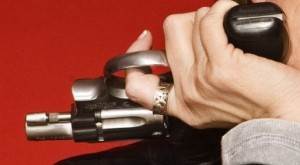
Gallup: Obama Job Approval Down to 49%
Palin: Cancer Screenings – Rational Advice or Rationed Care?
Get Your Pap Smear to Screen for Cervical Cancer—But Less Often
Or maybe it’s really just the weather and that mansion in Montecito…
“Obama Fried Chicken” Sign Cut From Rap Video
The view from a Turkish journalist: Americans have thrown the towel [Newsflash for Turkish journalist–Obama and the political elite in DC have thrown in the towel, the rest of America has not].

This is the Financial Times article the Turkish journalist refers to. Basically, it’s a warning to Europe to look out for themselves. The President of the United States is governing pragmatically within his conviction that the world is entering the post-America era. (The entire article is brief and you might have to sign up for a 30-day trial to read it so I swiped the whole thing.)
I wouldn’t characterize it as pragmatism in response to perceived reality. I believe the President of the United States wants to see America humbled. Europe needs to look out for itself just the same. He doesn’t like them either. He calls himself the first Pacific President. He wants to distance himself from America’s history. He is the first President who wants to punish his country based an a third-world anti-Western resentment mentality. He identifies with grievances against America and apologizes for American greatness. He wants to rub our noses in the dirt.
About obama fried chicken. Is that like a rubber chicken that is empty inside and stretches the truth?
Don’s homage to Joey in today’s day in history was precious!
That’s why they love him in Home Depot and Katie’s restaurant.
Definitely a special This Day in History clip to have on its own!
There’s a response to David Brook’s cheap shot at Sarah on Sunday. (And I guess all the other days as well.)
http://www.youtube.com/watch?v=bHsPDbPPFQs
God I cannot stand that Mike Huckabee!
Huckabee is a phony.